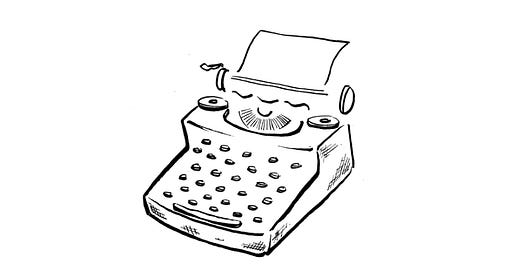My dad had a great collection of American fiction from the 1930s-1960s, that he began assembling when he could barely afford to buy a book.
By the time I was around eleven, I had read all the Hardy Boys my brother had passed down to me and wasn’t sure what to read next. (Yeah, I’d done all the Tom Swifts, too, and boys didn’t read Nancy Drew back then…our loss, not Nancy’s.)
One day my dad, seeing me looking at his imposing bookcase of fiction, walked over, pulled out a copy of Brave New World (Huxley), and told me to “try this.” I did. I felt a little confused—out of my element—by the story. But I was also, admittedly, kind of proud that that he believed I was ready to leave childhood things behind. (Fortunately, just in terms of reading matter; rest assured—it remains intact elsewhere to this day). Next, he gave me 1984 (Orwell) to read. Both those two choices are surprising in retrospect, though, in some ways, more apt now than ever.
Then Hemingway, Fitzgerald, and Salinger. And “one-offs” like The Caine Mutiny by Herman Wouk, Von Ryan’s Express (David Westheimer), and the iconic Catch-22 by Joseph Heller. I acknowledge that they are all male writers, although I know he also had a strong, if not complete, collection of Virginia Woolf, which I never delved into. (He did, however, manage to get me completely immersed in Rebecca by Daphne du Maurier.)
In the middle of that bookcase (well, I guess second shelf down alphabetically), there was a series of books by an all-too-forgotten1 author named Peter De Vries. To crib from “Goodreads”, De Vries was “‘the best comic novelist not named Mark Twain.’” He wrote classic one-liners like: “Nostalgia ain’t what it used to be” and “Let us hope, ... that a kind Providence will put a speedy end to the acts of God under which we have been laboring."
I imagine if I read his books now, they might seem very much of their time—stilted or belabored. But that doesn’t diminish the value of what I took away from reading them back in the 1960s.
I’ve always been a nonfiction writer, but, now that I’m about to start publishing fiction, I’ve been thinking about how to describe my writing, and I keep going back to that signature skill of De Vries—to lightly deconstruct conventional thinking—especially when taken too seriously—and to encase any wisdom (of which he had no pretensions) in a firm but supple surround of humor.
I plan to start releasing episodes of “The Man Who Woke Up the Buddha” next weekend. I hope people find it, in no particular order, insightful, irreverent, intriguing, and amusing—that any wisdom I’ve managed to get in there isn’t taken too seriously. Or humor too lightly.
My dad would have been the first to point out that, technically, “forgotten” does not permit a modifier. You’re either forgotten or you’re not. Of course he also believed you could break any writing rule as long as you knew you were breaking it.




It's interesting how your posts on the unhoused in Brattleboro jibe with a lot of Buddhist stuff as well. When a writer writes on real things, you wonder how attached he or she is to the result and I see you are attached to the people you write about who are living out on the margins. Buddha talked negatively about attachments, but attachments to people aren't so cut and dry, especially when you know you might be able to help. It's a tough call.
I volunteer with and help people who are or were on the margins of their own lives due to addiction, and I often wonder who is there to really REALLY understand their stories. It's part of why I write my own Substack.
Sounds great, David. I'm looking forward to Buddha's awakening when we need him/her most.
Art